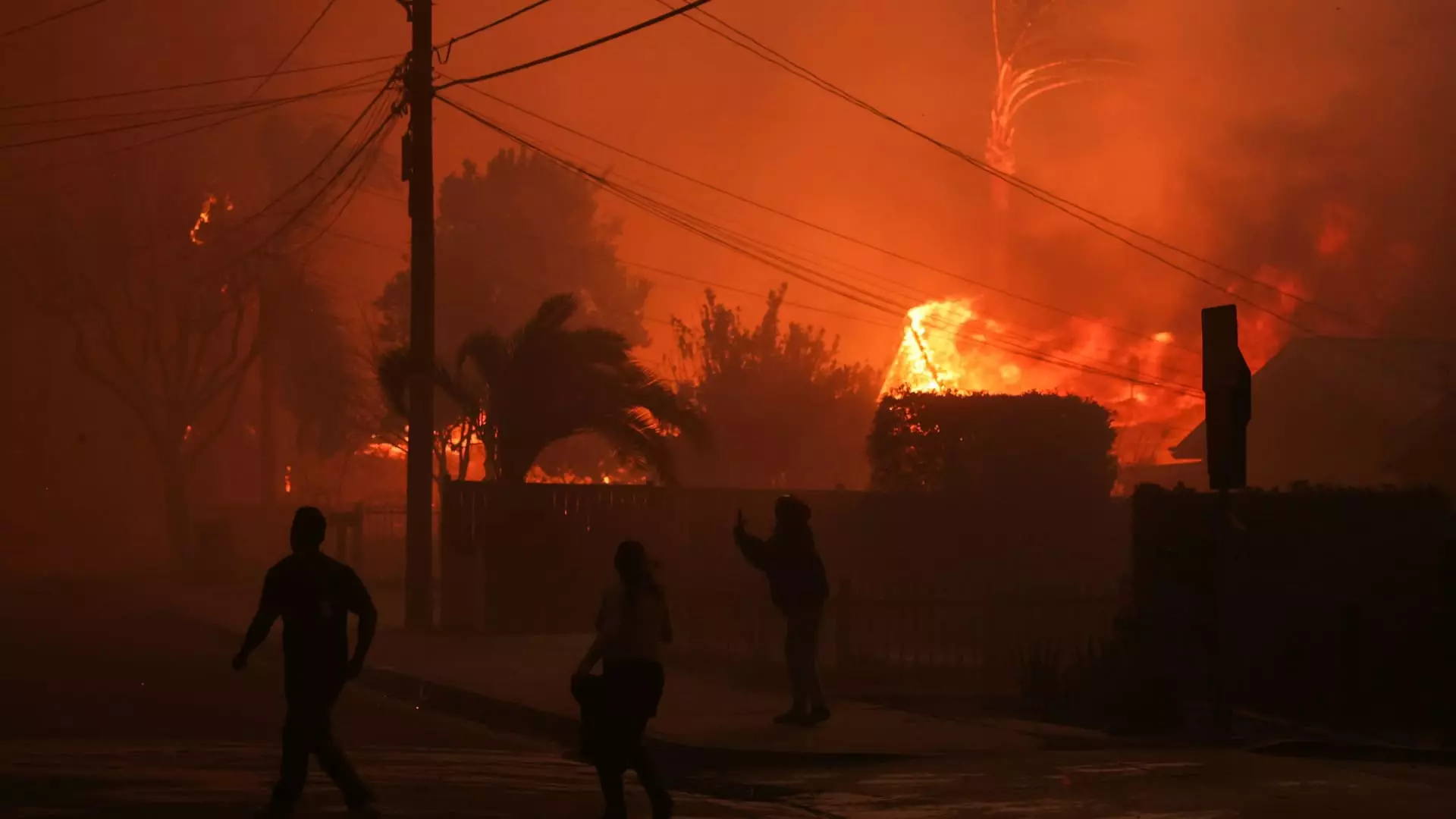As California faces another onslaught of wildfires, the economic ripple effects are being felt across the state, particularly within the utility sector. Edison International, which operates Southern California Edison, has seen its share price plummet by 13% amid fears stemming from the current wildfire crisis. Situated in close proximity to the Los Angeles metro area, the utility finds itself at the epicenter of concerns related to fire safety, evacuations, and public safety.
Market Reactions and Public Concerns
The anxiety surrounding ongoing wildfires has forced local authorities to issue evacuation orders for tens of thousands of residents, underlining the urgency of the situation. Tragically, the human cost has already been seen, with reports indicating at least two fatalities linked to the fires. The turmoil has exacerbated the already strained power distribution network, leaving approximately 70,000 Edison customers in the dark as power outages become increasingly common in fire-prone areas.
The fluctuations in Edison International’s stock create an unnerving precedent, echoing the sentiments from past incidents where utility companies had to navigate the treacherous waters of wildfire liability, often facing financial ruin. Public utilities are acutely aware that historical incidents have hurt their financial standing and shareholder confidence.
Despite mounting pressure and scrutiny, there currently remains no evidence that Southern California Edison’s equipment is implicated in the wildfire ignitions. An analyst from Bank of America noted a lack of data supporting any link between the fires and Edison’s operations, which presents a complex scenario. The firm is still preparing for potential costs, as media reports suggest that Edison’s infrastructure may have suffered collateral damage amidst the chaos.
Wildfire management has been increasingly challenged by climate change and the subsequent heightened risk of wildfires, leading to operational setbacks and long-term strategic adaptations for utility companies. Despite these pressures, regulatory adjustments like California’s AB 1054 law have introduced measures that, at least theoretically, shield utilities from a complete financial collapse due to wildfire-related liabilities.
The decline in Edison International’s share price reflects a larger theme impacting nearly all California utility stocks. For instance, Pacific Gas and Electric, which previously declared bankruptcy due to wildfire liabilities, continues to experience fluctuations in stock valuation; its stock dipped by 4% while other firms like Sempra also faced downward trends.
Investor sentiment is currently leaning towards caution, sparked by the fires but also driven by the residual effects of past blunders. Analysts suggest that many investors are adopting a “sell now” mentality, emphasizing short-term uncertainty over long-term recovery or stabilization efforts. However, the defensive posture within the legislative framework, thanks to AB 1054, has provided an additional layer of reassurance against unfettered financial liabilities for utility companies.
The fate of Edison International hangs in the balance as wildfires rage on, drawing public attention, affecting investor sentiment, and ultimately shaping the future of utilities in California. The ongoing crisis has spotlighted the dual threats of climate change and infrastructure vulnerability, pushing utilities towards fortifying their systems against wildfire threats. As evacuations and power outages persist, it becomes ever more critical for companies like Edison to demonstrate their commitment to public safety, ensuring stability for their stakeholders while navigating the unpredictability of California’s wildfire seasons.

